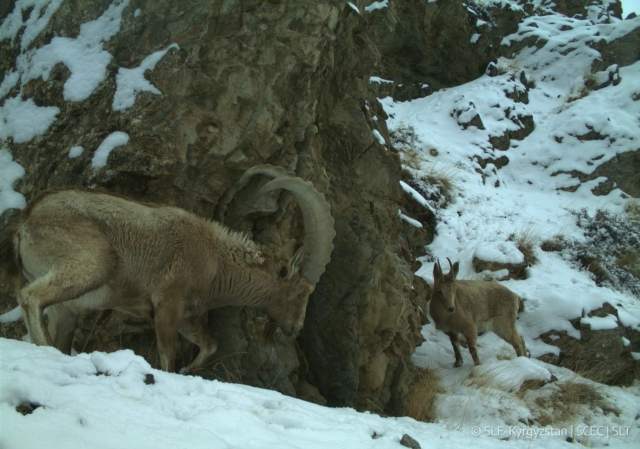Snow Leopard Foundation in Kyrgyzstan (SLFK) held eco-camps this July for the first time in two years. Fifty-eight students from 15 schools attended the camps in the beautiful Shamshy Valley, Kyrgyzstan. To maximize safety during the ongoing Covid-19 pandemic, kids came in small batches. Each group spent three days amidst nature, face to face with friends and mentors. The camps had been interrupted due to the pandemic. However, SLFK staff kept in contact with kids through WhatsApp and other means of remote learning. A return to these in-person camps was especially meaningful for all involved.

Since the first-ever SLFK-led eco-camp in 2018, participation has greatly increased. During the 2018 pilot, only eight kids were in attendance, compared to 58 kids this year. And it was especially encouraging that of the 58 students, two-thirds were girls. These eco-camps give kids, and especially young girls, the chance to gain conservation awareness, knowledge, and aspiration so they can undertake positive environmental action in their communities.
The eco-camp program teaches local school students about nature in Kyrgyzstan, including snow leopards, prey species, and whole ecosystems through experiential learning. During these eco-camps, students observed how researchers set up camera traps to photograph animals in the wild. They then used this information to set up their own cameras by making salt licks for wild ungulates and setting up the cameras nearby. They later got to look through the photos of the sheep and goats that came for salty snacks.

The students learned about the plants of Shamshy, their medicinal properties, and how to make green tea from the thyme leaves they gathered. They took photos of all the flowers they could find and sat together in the evenings to count the various species they found and learn their names.
Students used spotting scopes and binoculars to learn how to spot ungulates and identify vultures and other birds. They also gained important skills on using first-aid in the wild and learned how to set up tents. They spent one night in a yurt where they watched nature films and shared their knowledge on local folklore about ibex, snow leopards, bearded vultures, and marmots.
For many of these students, it was their first experience staying in the wilderness without their parents. Some hadn’t stayed in a yurt before either! After nearly two years of being unable to host any in-person environmental education, this absolute nature immersion was invaluable and influential. During the camps, kids could be open and ask any questions they had for the team. Counselors found that kids were far more enthusiastic when they interacted face-to-face versus when on a screen or sending a message through an app.

The difference between sharing knowledge virtually and having experiences in nature with these young conservationists is clear. “I saw the eyes and faces of kids who saw their very first ibex through spotting scopes. They were so very happy,” said field coordinator Kasim.
Even children who live close to nature reserves sometimes don’t have a particularly strong connection with their local ecosystem. Modern technology has changed lifestyles and kids can now spend hours on phones and tablets rather than exploring outdoors.
Another barrier to children’s natural education is the lack of access to camps. SLFK Director, Kubanychbek (Kuban) Zhumabai uulu, explains, “There are not many summer camps that take kids into the mountains, and those that do exist are quite expensive. Most summer camps take kids to beaches on the lake, where they don’t get nature study experiences. The eco-camps that we host give kids an opportunity to learn about the flora and fauna in their backyards, and teach the importance of protecting the land around them.”

SLFK and Snow Leopard Trust will continue engaging with kids via online platforms because they are still a useful technological tool to connect with others. At the same time, we will keep encouraging these kids to learn more about their environment by inviting active students to our nature-based field trips. Eco-camps are instrumental in inspiring the next generation of nature conservationists to protect the snow leopard and its habitat.
Acknowledgements:
This project is co-funded by IUCN Save Our Species. Its contents are the sole responsibility of Snow Leopard Trust and do not necessarily reflect the views of IUCN. This project is in collaboration with Snow Leopard Foundation in Kyrgyzstan and Woodland Park Zoo. Special thanks are also due to David Shepherd Wildlife Foundation and Acton Family Giving for supporting conservation education in Kyrgyzstan.


Congratulations 4 getting the kids to understand nature firsthand and not just what they are told on social media and tv. Good to see the girls also experiencing the wild. Wish u well 4 the future